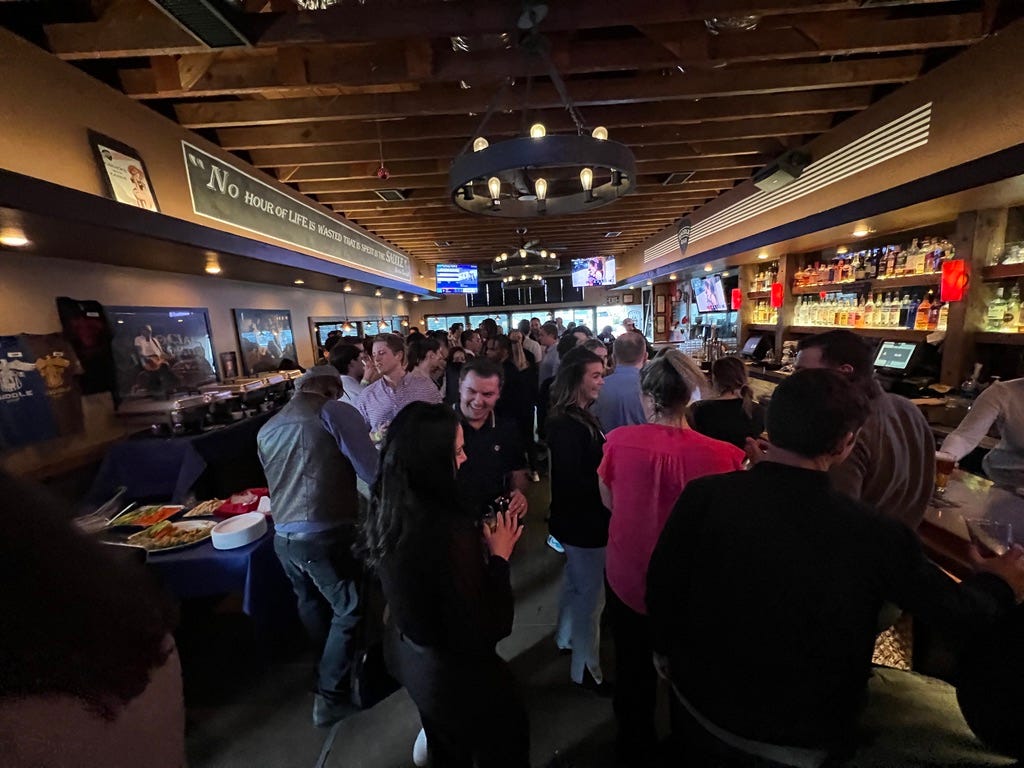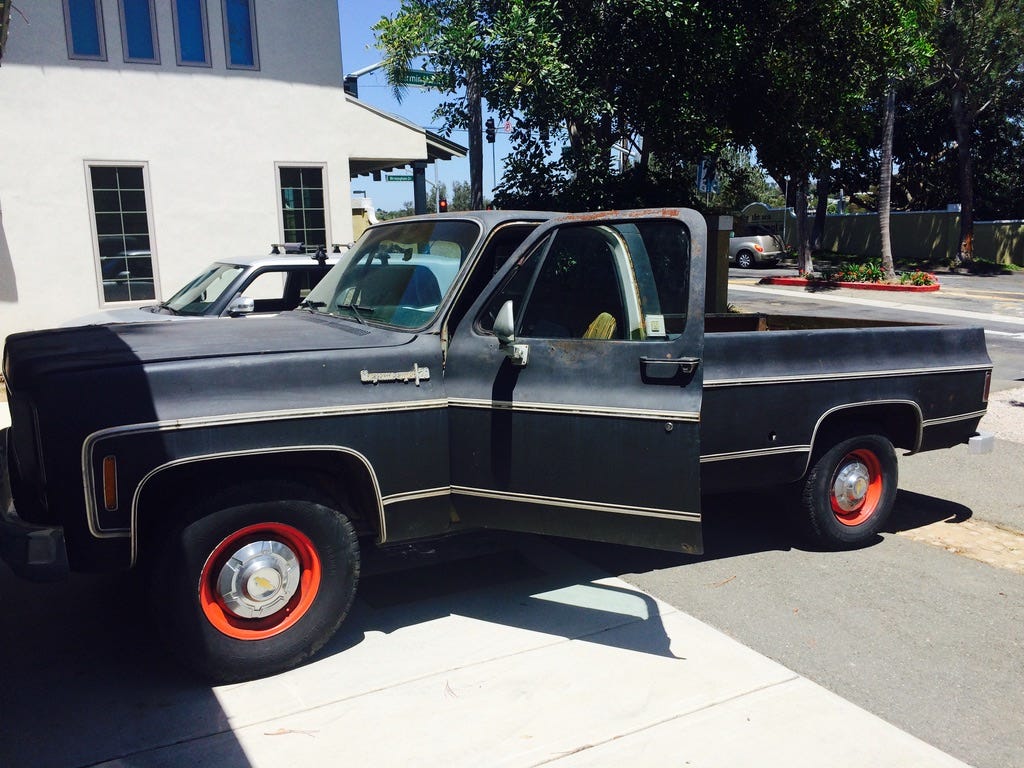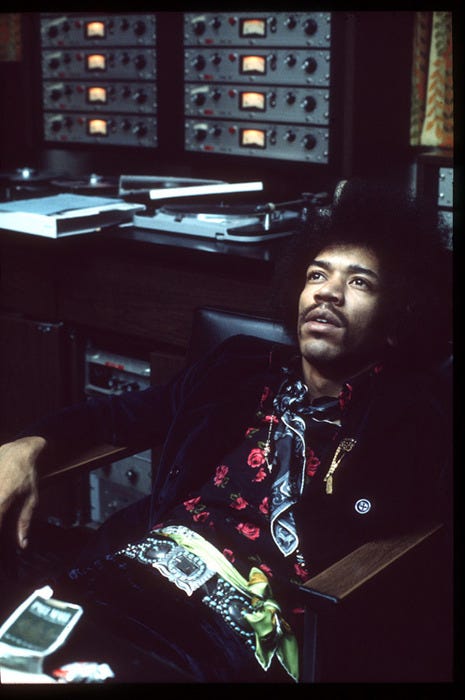15 for 15
Fifteen years at ServiceNow. I’ll admit—that’s special. Allow me to reflect
A few months ago I was speaking to a group of people in our jaw-dropping New York office. Seventy-two floors up. The Empire State Building, Chrysler Building, and Statue of Liberty all in view. When it was my turn, they introduced me not just as the leader and founder of Partner Design Studio, but as someone who's been at ServiceNow since 2010.
Audible gasps.
I was going to move on, but someone shouted, “So what’s changed?” Totally in jest. People laughed. Everyone in the room knew: everything had changed.
I laughed too—but I froze. Forty people staring at me, skyline behind them, and suddenly my mind was a movie reel. Faces and places. Events and memories. Fast. Faster. Offices, rooms, logos, stages, screens, drinks, code, demos, meetings, calls, arguments, laughter—people, people, people.
And in the middle of it, the question lingered: what’s changed?
The answer: everything. And also, nothing.
In some ways I still feel like that guy who walked in on April 26, 2010. Ready to earn my paycheck. Astounded by what this company was doing. Desperately trying to keep up. I’m still astounded. Still earning it. Still running.
It hasn’t stopped—not for a minute. The pace is relentless. The pace of change is stupefying—one of my favorite words.
And as someone who came in from the outside—not a tech guy—watching this whole thing happen, watching what hypergrowth really looks like… it's been nothing short of astounding.
I’m a writer. I observe from the edges. I’m the watcher, the passenger. I ride and I watch. I write and I write. And watching this company evolve has been an experience I could never have imagined.
But at the same time, I’ve helped make it what it is.
Brag: I’ve started four major teams.
Brag: I’ve hired well over a hundred people.
Brag: I played in the band.
I’ve tried to help steer the ship—making decisions and taking action aligned to the mission.
When I drove up to the Solana Beach office for my first interview, I didn’t know what ServiceNow did. I didn’t know who worked there or what their vision was. Looking back, I didn’t know much.
But sitting in the car, about to go in, I did know one thing: I’m going to work here.
And I meant that in three ways:
I’m going to get this job–I’m going to work here.
I’m going to work my ass off–I’m going to work here.
Who I am is going to fit here–I’m going to work here.
I did the interviews in a strange building with a bunch of somewhat oddball people. Nothing I saw or heard changed my mind. In fact, I was reinforced. At the end, the hiring manager said, “We’ll get back to you in a week or two.”
I literally rapped on his desk and said, “I want to close this now.”
He smiled. “We haven’t even talked about salary.”
I threw out a lowball number. I didn’t care. I just wanted in.
He looked at me for a second. Then he said, “We can do that.”
It was a Thursday. I said, “I’ll start Monday.”
He laughed. “No—you’ll start in a couple weeks.” Like, go get your life in order.
(I could write a whole piece about my first day: food poisoning, a meeting with Fred Luddy, and ITIL…)
When you start a job in tech, people always want to know where you worked prior. I had no idea. Someone asked me, “Where were you before this?” I said, “Um… the parking lot? I just got here, man.” I also wasn’t ready to cop that I just rolled in from the guitar industry.
One constant: hypergrowth, the non-stop expansion beyond all means and resources. It’s been hard. It’s been ridiculous. It’s been stupefying, electrifying, gratifying. It’s been hypergrowth. Not for the faint of heart.
But if we’d stopped with just ITSM and stayed a 1,000-person company?
God, that would’ve been boring. I’d have gotten into trouble and been fired—no question.
Upon reflection I feel grateful. I also feel hopeful. And a little nostalgic. All of these feelings live outside my usual perimeter—suspicion, strategy, and scanning for threats. Weird. My trust has a long onboarding process. I'm not a pessimist--just allergic to wishful thinking. All of these natural ways of being are, again, in disharmony with my current feelings of accomplishment and validation.
I’m currently leading the fourth team I’ve started here at ServiceNow, my favorite yet (for those who remember: Wiki>Express>Demo Center>Partner Design Studio). The work is exciting, the people exceptional, the leadership inspiring, the mission--as always--a seemingly insurmountable challenge. Being a Solution Consultant is an honor. Watching the company step into a bold new chapter as the AI platform is nothing short of astounding. It’s a long way from Incident, Problem, and Change.
To mark my fifteen years, here are fifteen things I picked up along the way. Hard-won, field-tested, and worth their weight. I’d bet the house on every one. Here they are:
The resilience of a good idea. Fred Luddy began with the idea of making life easier for the average worker. That was it. That idea, scaled, created a multi-billion dollar success.
“Hungry & Humble.” Maybe one of the best corporate mantras ever. Fred Luddy said at the outset, “We need to be confident, but we cannot appear arrogant.” Applicable company-wide.
“Get Comfortable Being Uncomfortable.” Four words from Frank Slootman that flipped the script on ServiceNow. Sounds sinister, but really is more of a mental exercise to drive excellence.
“Trust is the Ultimate Human Currency.” Bill McDermott brought this to ServiceNow in his first days on the job. It encapsulates an entire mindset of how to do business and live life.
“If you’re gonna grow, make it hypergrowth.” It’s the only way to win. Go fast enough to feel unsafe. If you’re not building the plane while you’re flying it, you are not in hyper growth.
Knowledge truly is power. People I’ve seen thrive most at ServiceNow are those who learn the tech, the business, and the end user. Everybody wants to work with an expert.
People come and people go. Pinning your existence on one person is tricky. Are you here for a chapter or are you in it for the long haul? Plan accordingly.
Change or be changed. Create opportunities. Companies thrive on new ideas. Be entrepreneurial. Make new business. Doing the same thing year after year is not sustainable. Imagine if we’d stopped with IT.
If you don’t like your job, find another one. If you can’t find anything, look around for a pile of garbage, a room full of manure, or a burning building. These situations usually need help.
Operate outside your comfort zone. David Bowie said, "When you don't feel that your feet are quite touching the bottom, you're just about in the right place to do something exciting."
“Never walk past a problem.” Another great one from Bill McDermott. Could be simple as an empty coffee pot in the break room or a nasty customer support escalation with lots of angry people. Fix it.
Define your mission and stick to it. When you lead a good team, people will always try to pull you into something outside your core—but focus drives execution, and distraction slows you down.
Take the phone call with the VP or person above you seriously. Their time is valuable. Even if it’s just a five minute synch. Do some prep, write down your points, be on, be of value.
Hire for agency. People with agency believe they can get things done—and they do. Skills can be learned, drive can’t.
Don’t make enemies. Friends are hard enough to come by. Work is hard enough without feuds, grudges, and empty hassle. You don’t need to suffer fools, but neither do you need to rule the playground.
So there it is–my entire body of collected knowledge from fifteen years at the finest software company to ever come out of Solana Beach, California. I hope one or two of these hits for you.
Bonus point from my favorite songwriter:
“Keep a clean nose/Watch the plainclothes/You don’t need a weatherman to know which way the wind blows.”







Sat here, Sunday morning, before the rest of the house gets up, cupping and supping my industrial-strength cortado, reading this and smiling.
Great writing, and already looking forward to the next one.
What jumped out for me was, "My trust has a long onboarding process."
It stood out, as I'm probably the opposite, and that seven-word statement, I suspect, says a lot. It's always the throwaway comments that are golden.
For much of the past decade, in fact, there probably hasn't been a day that's passed when I haven't thought about the different traits that people have.
I can't switch it off.
Writing is your thing, fueled by your observations from the edges, I suppose I do the same with people. Observing behaviours, then thinking about what traits and needs are causing those.
Is it that person's source code or maybe an adaptation to the environment?
I need another coffee, which I make with this contraption - 9barista.com. It takes a little longer, like my writing |(I'm dyslexic), but like a great presentation, the extra time makes a difference.
If you fancy knowing more about your traits (source code), I'd happily decode them and share them with you, ideally over a coffee, but Zoom/ Meet or similar might be necessary.
PS - This isn't some thinly veiled sales ploy. Consider it payback or payforward for future posts that you'll pen.
https://assessment.predictiveindex.com/bo/925M/JBs_PIonly
Cheers, jb
PPS Brilliant leadership is like a great bass line. You can hardly tell it is there, but take it out and the whole song falls apart. Which has been my email signature sign-off for over twenty years.